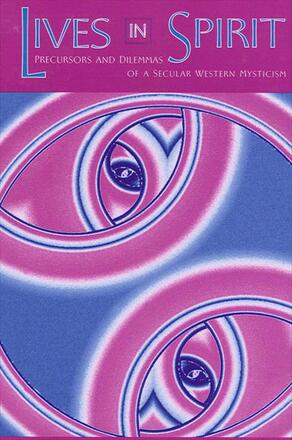Acknowledgments
Introduction
Part I: Psychological and Cultural Bases of Inner-Worldly Mysticism in Modern Western Society
1. Phenomenology and Psychodynamics of Transpersonal Experience
Descriptive Phenomenologies
Personal Development, Psychodynamics, and Metapathology
2. A.H. Almaas and the Synthesis of Spiritual Development and Psychoanalytic Object-Relations Theory
Almaas, Transpersonal Psychology, and Psychodynamic Perspectives
Multiple Forms of Essence: A Cartography of the Numinous
Issues and Controversies
3. The Sociology of Inner-Worldly Mysticism in Max Weber and Ernst Troeltsch
Max Weber on Radical Salvation Movements
Inner-Worldly Mysticism as the "Secret Religion of the Educated Classes"
Dilemmas and Societal Implications of Contemporary Inner-Worldly Mysticism
Part II: The Historical Roots of Inner-Worldly Mysticism: Prototypes of Crisis and Resolution in Plotinus, Epictetus, and Gnosticism
4. Plotinus and Hellenistic Inner-Worldly Mysticism
Epictetus and Personal Presence
Plotinus and the Formless Dimensions
Cognition and Contemplation: The Plotinian Psychology of Silberer and Jung, and the Origins of Transpersonal Psychology
Object-Relational Patterns in Plotinian Contemplation: Mirroring and Splitting
Plotinus on the Metapathologies of the Gnostics
5. Gnosticism: Mystical Dualism and the Metaphysics of Hate
The Elements and Social Background of Gnosticism
Some Specific Gnosticisms: Metapathologies and Implied Dynamics
Egyptian Hermeticism
Barbelites, Cainites, Ophites, and Sethians: Mystical Satirists of the Old Testament
Valentinus and Ptolemy: Heterodox Christian Gnostics and the Redemption of Sophia
Manichaeanism: A Radical Prophetical Dualism
"Please Allow Me to Introduce Myself ": The Problem of Splitting in Mystical Gnosticism
Freud's Gnostic Metapsychology of the Newborn
Part III: Transpersonal Anticipations and Conflicts in Nineteenth-Century Precursors to a Naturalistic Inner-Worldly Mysticism
6. Nietzsche
Aspects of Essence in Nietzsche's Thought and Experience
Nietzsche's Life: Dynamics and Tragedy
Relations between Pathology, Creativity, and Essential States in Nietzsche
The Nietzschean Psychologists and Abraham Maslow
7. Emerson, Thoreau, and Hiram Marble: New England Transcendentalism and a Brief Look at Spiritualism
Emerson's Eternal Moment of Being
Dynamics and Openings to Essence in Emerson's Life
Thoreau: The Woods of Concord as Mirror of the Soul
Thoreau's Life and Dynamics
Hiram Marble and Spiritualism: Kierkegaard's Knight of Faith at Dungeon Rock
Part IV: Some Political Ambiguities in the Development of Presence: Inner-Worldly Mysticism, Metapathology, and National Socialism
8. Jung, Visionary Racial Occultism, and Hitler
Self, Archetypes, and Collective Unconscious
Carl Jung's Dance with the Devil
Narcissistic Vulnerability in Jung's Development
From "Collective Unconscious" to "Objective Psyche": Jung's Shift from Pseudo-Biology to a Cognition of Metaphor
Aryan Racial Occultism: Why Jung Is not a Nazi
Hitler as Charismatic Prophet
Max Weber on Spirituality and Politics
9. "Triumph of the Will": Heidegger's Nazism as Spiritual Pathology
Heidegger as Spiritual Thinker
The Rectorship
Heidegger's Spiritual Crisis and Its Partial Resolution
19241927: Spiritual Awakening
19281932: Purgation
19331934: False Illumination
19351944: True Illumination: Direct Manifestations of Essence
Vulnerabilities of Character
Dilemmas of Inner-Worldly Mysticism
Jung and Heidegger
Socrates and Heidegger
Heidegger and Weber
Part V: Roots of a Contemporary This-Worldly Spirituality
10. George Ivanovitch Gurdjieff: A Near Eastern Inner-Worldly Mysticism in the Modern West
Gurdjieff's Life and Teachings
Gurdjieff's Anticipations of Object-Relations Theory
Object-Relational Dilemmas in Gurdjieff's Life and System
The Schizoid Position
The Paranoid Position
The Depressive Position: Making Reparation and the Capacity for Concern
Gurdjieff and Almaas
A Final Note on Gurdjieff in Nazi-Occupied Paris
11. Aleister Crowley, Sexual Magick, and Drugs: Some Ambiguities of Sex, Will, and Power in Inner-Worldly Mysticism
Crowley's System of Mystical Will
The Practices: Astral Travel and the Invention of the Speedball
Crowley and Spiritual Realization
False Will
False Love
False Power and the Role of Hatred
The Horrific Childhood of Aleister Crowley
Contrawise: The Avoidance of Essential Power and Will in Jerry Garcia
Crowley and the Dilemmas of Contemporary Spirituality
12. Feminist Spirituality: The Return of Sophia
Psychology, Gender, and Transpersonal Experience
Socio-Cultural Bases of a Feminist Shamanism
The Feminist Roots of Nineteenth-Century Spiritualism and Theosophy
Contemporary Feminist Spiritualities
The Autobiography of Jean Houston
Limitations of a Feminist Inner-Worldly Mysticism
Part VI: Transpersonal Psychology, New Age Spirituality, and the Human Sciences
13. Concluding Reflections
Reconciling Transpersonal Approaches and the Human Sciences
Contemporary Societal Implications
Inner-Worldly Mysticism and Deep Ecology: The Weberian Dilemma Revisited
Consciousness Evolution vs Cultural Globalization
A Closing Word from Kierkegaard
Notes
References
Index
